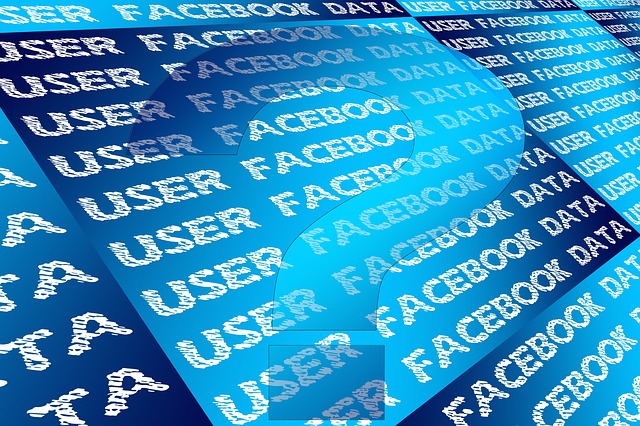
Many people are in up in arms about Facebook for any number of reasons. We’ve talked about the “programming vs. sales” struggle that’s been occuring inside the upper echelons of the company. In a recent blog, Facebook’s “sales department” has made user data available to any and all advertisers, including questionable organizations like Cambridge Analytica (which announced it was going out of business on Monday).
But it’s this notion that Facebook has been selling and marketing our data that has elevated the term, “WE are the product” into the spotlight. Many are incredulous that Facebook has been slicing and dicing our data, making it easy to sell our personal information to a growing number of advertisers – including nefarious data collection companies like Cambridge Analytica.
In a recent article in Slate – “Are You Really Facebook’s Product?” – writer Will Oremus talks about the history of big companies using data to market audience to advertisers. He quotes op/ed writer Edward Morrissey:
“You’re not Facebook’s customer. You’re Facebook’s product.”
And in fact, Oremus explains a key distinction is whether you pay for the platform in question. In the case of Facebook, of course, we don’t spend a dime.
He quotes a comment discussing the news site, Digg, and applying it to Facebook:
“If you are not paying for it, you’re not the customer; you’re the product.”
But Oremus traces the origin of this quote back to the ’70s when it was first used to describe network television. In those days, a handful of networks – CBS, NBC, and ABC – were being regularly accused of airing banal content in an effort to grab ratings and its spoils: ad dollars.
So, in essence, isn’t Facebook’s model similar to broadcast media’s – including of course, radio?
Broadcast TV and radio, and yes, Facebook, are free media platforms that provide programming and content at no cost. And thanks to technology, Facebook has far more sophisticated tools to learn about our habits, our beliefs, our pros, and our cons – especially compared to what broadcasters can provide.
But broadcast media companies have been aggregating our data, too. Ratings companies from Hooper to Arbitron to Nielsen have been providing demographic information about consumers to savvy advertisers. They know who’s watching TV and listening to the radio using sophisticated breakouts and analytics, including product usage data from companies like Scarborough. And as we know, ratings companies have routinely sold this data to agencies at much lower costs than broadcasters pay for the same data.
 Oremus believes you can make the case that in radio’s business model, listening audiences are in fact the product, used by advertisers for decades as marketing tools to sell their products and services.
Oremus believes you can make the case that in radio’s business model, listening audiences are in fact the product, used by advertisers for decades as marketing tools to sell their products and services.
His arguments are fascinating, and worth your time and consideration because they speak to our personal relationships with media and technology. The question of whether people are being taken advantage of by Facebook (or radio and TV) is a compelling one.
Oremus points out that while Facebook – and broadcast media – are free, consumers pay for these services in other ways. In Facebook’s case, it may be your privacy and your behavioral data. And of course, your time. For commercial radio and TV, it’s all those commercials.
He does make a distinction that historic complaints about Facebook and broadcast media are quite different. Over the years, TV (in particular) and radio have been been tagged with censorship (and much of that has to do with the presence of the FCC), and bland programming designed to generate ratings. Facebook, on the other hand, has been plagued by a lack of controls on its content, publishing pretty much anything. But despite that difference, both business models are quite similar. They all market their audiences to advertisers.
These are the trade-offs consumers make in their enjoyment and usage of media – whether it’s broadcast or social. Sometimes, you put up with too many commercials (and/or bad ads), or you give up your data.
All that said, if you’ve ever put together a demographic ranker using Arbitron, Nielsen, or Eastlan data, a Scarborough profile, or other tools designed to present your audience to advertisers, you’re just operating a more rudimentary version of what Facebook and Google have been doing successfully for years.
These days, it is easy to rag on Facebook. Clearly, many aspects of their privacy policies and marketing tools require more thought and transparency. But to suggest that Facebook is somehow a bad actor because it uses audience data to market its audience – us – to advertisers is to be naive about what mass commercial media has always been about.
 And the fact is, every radio owner would be more than happy to trade away some of its audience privacy in exchange for more robust audience information, metrics, and details. In many ways, all the attribution and granular metrics radio so very much wants to provide advertisers is the stuff that has made platforms like Google and Facebook so valuable. If anything, radio is guilty of data envy.
And the fact is, every radio owner would be more than happy to trade away some of its audience privacy in exchange for more robust audience information, metrics, and details. In many ways, all the attribution and granular metrics radio so very much wants to provide advertisers is the stuff that has made platforms like Google and Facebook so valuable. If anything, radio is guilty of data envy.
Yes, radio is about music, information, talk, and personality.
But the actual product?
Look in the mirror.
- What To Do If Your Radio Station Goes Through A Midlife Crisis - April 25, 2025
- A 2020 Lesson?It Could All Be Gone In A Flash - April 24, 2025
- How AI Can Give Radio Personalities More…PERSONALITY - April 23, 2025




There sure are similarities, Fred. The value exchange is essentially the same — the audience gets free content and, in return, they allow themselves to be the product. That’s true for traditional media and for the data traders (Facebook, Google and fellow travelers). But what’s changed with Cambridge Analytica and other revelations is that the audience is waking up to the reality that they’re no longer just trading their attention or their time for that content, but also their personal data. And that’s making a big chunk of that audience feel nervous and protective. We did an Audience Insights Inc. survey of 1,500+ Canadians aged 18+ in early April. While only a very few Facebook users familiar with the Cambridge Analytica story had taken steps to delete their Facebook account (3%), 27% had already changed their privacy settings (up to 32% among millennials)… and 65% said they were now going to be less likely to click on sponsored posts. That has big implications on Facebook’s business model and, for that matter, on anyone else who’s trading free content for personal data.
Great points all, Jeff. Thanks for sharing the research – eye-opening and helpful!
Your blog is better than coffee – brain awakens immediately upon reading…another excellent piece- and thanks
And less expensive. Thanks, Tom!
Excellent, thoughtful article, Fred. Reminds me of a Facebook post a few weeks ago from a radio friend who buys ads on FB. I thought his perspective gave great insight–and frankly, eased some fears–about the use of that collected info. Here’s a portion of what he wrote:
“As someone who frequently uses this service for myself and my clients, I can tell you, there is no way for me to know what kind of car you drive, but I can target my advertising towards people who drive your type of car. I can not tell where you are located at this moment, but I can target my advertising for people who are in your current location. I can not tell which way you lean politically, but I can target people who lean your way politically. This is the value of Facebook advertising. Without it, I would not be paying what I do to use the platform for advertising.”
Now, whether the easing of those fears is warranted or not, I can’t say, but it was a helpful perspective to learn–and probably Facebook would benefit from if all people knew.
Dave, great quote from your friend about the value of Facebook’s targeting. As I mentioned in the post, radio actually has some of this targetability with tools like Scarborough, but instead, settles in reach and frequency. Thanks for the comment.
Well, didn’t expect this… Let us call it an awakening 🙂 Never have I thought about it like this, sure I realized it for the TV but never it crossed my mind about social media!
Thanks for the note, Damir.